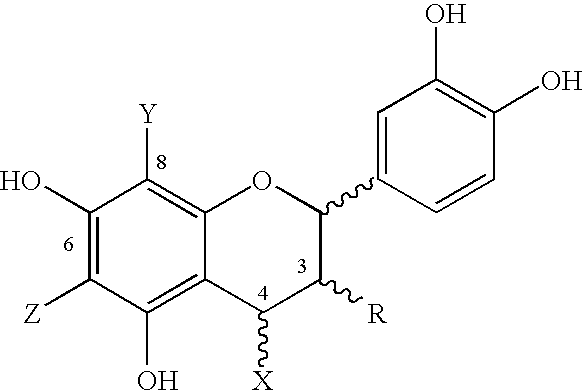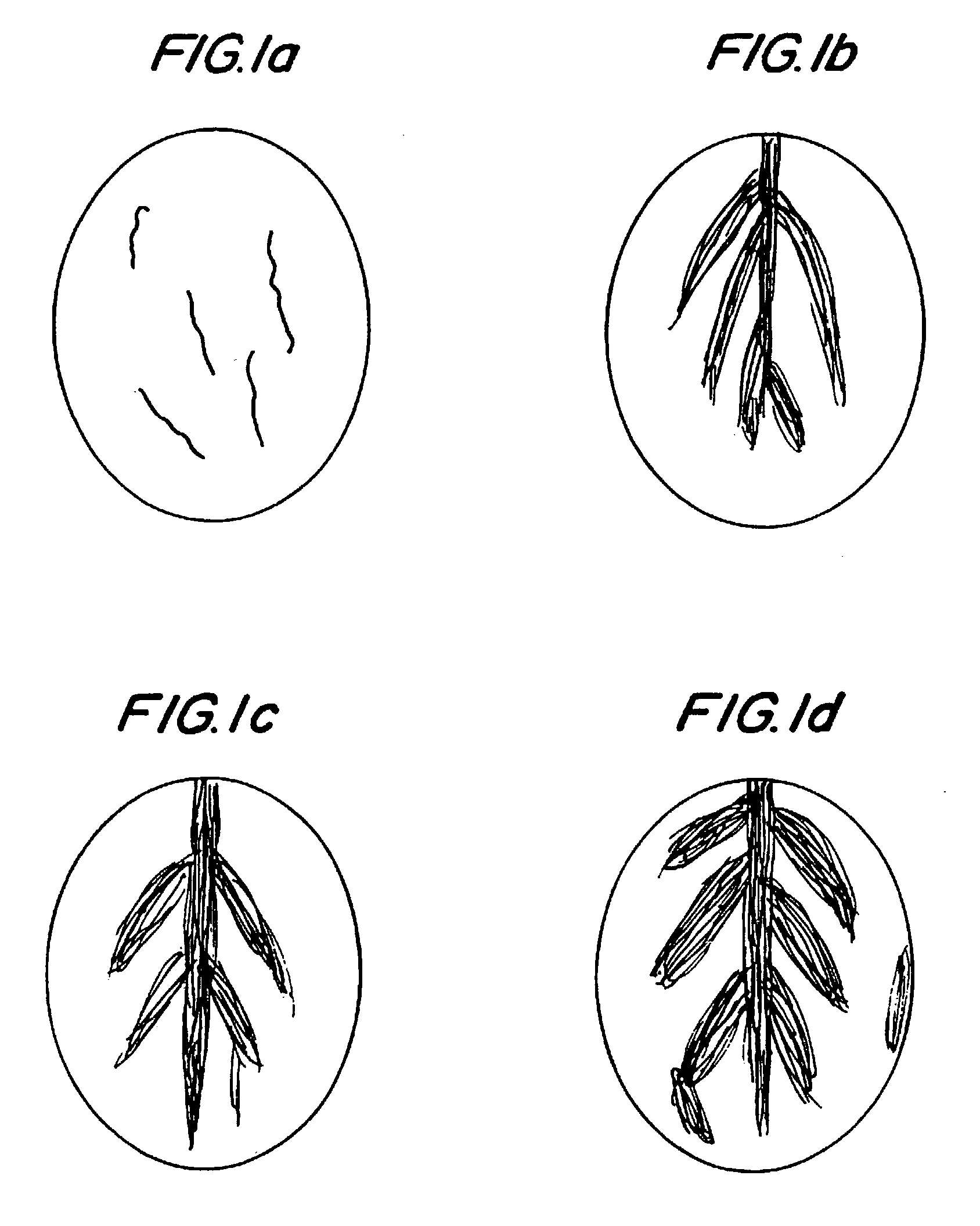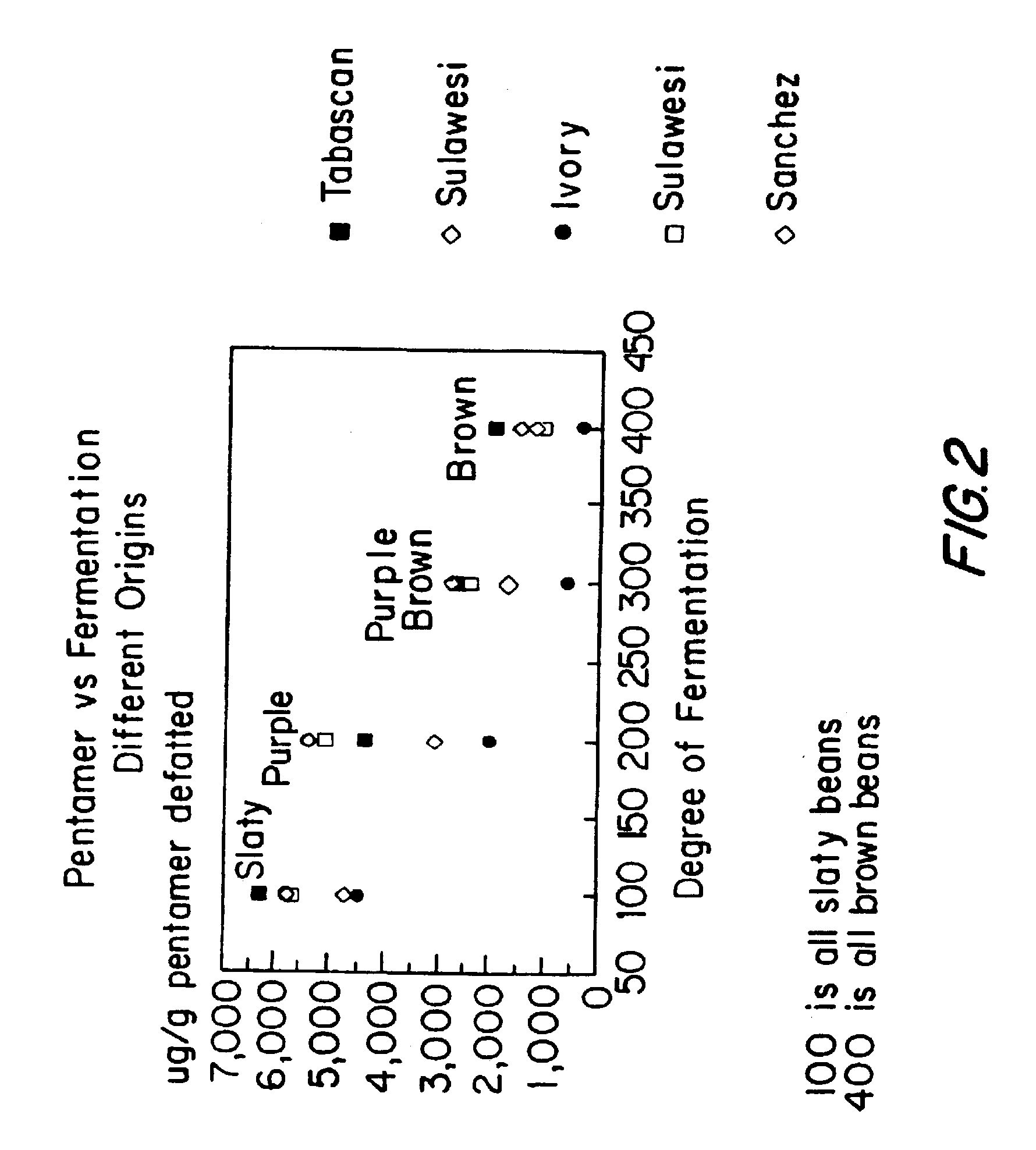Procyanidin-L-arginine combinations
a technology of procyanidin and arginine, which is applied in the field of procyanidin-l-arginine combinations, can solve the problems of affecting the quality of cocoa solids, affecting and being difficult to achieve the separation of current cocoa bean cleaning technology, so as to improve the quality of cocoa solids, and reduce bitterness. the effect of astringen
- Summary
- Abstract
- Description
- Claims
- Application Information
AI Technical Summary
Benefits of technology
Problems solved by technology
Method used
Image
Examples
example 1
[0343] Cocoa Source and Method of Preparation
[0344] Several Theobroma cacao genotypes which represent the three recognized horticultural races of cocoa (Enriquez et al., Cocoa Cultivars Register IICA, Turrialba, Costa Rica 1967; Engels, Genetic Resources of Cacao: A Catalogue of the CATIE Collection, Tech. Bull. 7, Turrialba, Costa Rica 1981) were obtained from the three major cocoa producing origins of the world. A list of those genotypes used in this study are shown in Table 2. Harvested cocoa pods were opened and the beans with pulp were removed for freeze drying. The pulp was manually removed from the freeze dried mass and the beans were subjected to analysis as follows. The unfermented, freeze dried cocoa beans were first manually dehulled, and ground to a fine powdery mass with a TEKMAR Mill. The resultant mass was then defatted overnight by Soxhlet extraction using redistilled hexane as the solvent. Residual solvent was removed from the defatted mass by vacuum at ambient temp...
example 2
[0345] Cocoa Polyphenol Extraction Procedures
[0346] A. Method 1
[0347] Cocoa polyphenols were extracted from the defatted, unfermented, freeze dried cocoa beans of Example 1 using a modification of the method described by Jalal and Collin, Phytochemistry 6 1377-1380 (1978). Cocoa polyphenols were extracted from 50 gram batches of the defatted cocoa mass with 2.times.400 mL 70% acetone / deionized water followed by 400 mL 70% methanol / deionized water. The extracts were pooled and the solvents removed by evaporation at 45.degree. C. with a rotary evaporator held under partial vacuum. The resultant aqueous phase was diluted to 1L with deionized water and extracted 2.times. with 400 ML CHCl.sub.3. The solvent phase was discarded. The aqueous phase was then extracted 4.times. with 500 mL ethyl acetate. Any resultant emulsions were broken by centrifugation on a Sorvall RC 28S centrifuge operated at 2,000.times.g for 30 min. at 10.degree. C. To the combined ethyl acetate extracts, 100-200 mL ...
example 3
[0351] Varying the Levels of Cocoa Polyphenols Via Manivulatina the Degree of Fermentation
[0352] Cocoa beans (T. cocoa, SIAL 659) were subjected to varying degrees of fermentation by removing and analyzing samples of beans taken from a mass of fermenting beans at varying periods of time of fermentation ranging from to (time=zero hours) to t120 (time=120 hours). The results are shown in Table 4.
5TABLE 4 Procyanidin Levels ppm (.mu.g / g) in defatted powder with varying degrees of fermentation Oligomer SAMPLE Monomer Dimer Trimer Tetramer Pentamer Hexamer Heptamer Octamer Nonamer Decamer Undecamer Total A-t0 21,929 10,072 10,106 7788 5311 3242 1311 626 422 146 tr 60,753 B-t24 21,088 9762 9119 7094 4774 2906 1364 608 361 176 tr 57,252 C-t48 20,887 9892 9474 7337 4906 2929 1334 692 412 302 tr 58,165 D-t96 9552 5780 5062 3360 2140 1160 464 254 138 tr ND 27,910 E-t120 8581 4665 4070 2527 1628 888 326 166 123 tr ND 22,974 *ND = none detected *tr = trace (<50 .mu.g / g)
PUM
 Login to View More
Login to View More Abstract
Description
Claims
Application Information
 Login to View More
Login to View More - R&D
- Intellectual Property
- Life Sciences
- Materials
- Tech Scout
- Unparalleled Data Quality
- Higher Quality Content
- 60% Fewer Hallucinations
Browse by: Latest US Patents, China's latest patents, Technical Efficacy Thesaurus, Application Domain, Technology Topic, Popular Technical Reports.
© 2025 PatSnap. All rights reserved.Legal|Privacy policy|Modern Slavery Act Transparency Statement|Sitemap|About US| Contact US: help@patsnap.com



